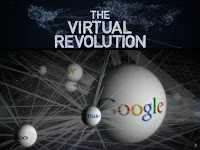These days if we look at the website of any big company we are very likely to see that they have a section called Corporate Social Responsibility, Sustainability, Responsibility, Environment and Society, Our Mission or something that tells us what the company is doing for the environment or the community. That is what CSR is all about.
There are many definitions of what Corporate Social Responsibility is but the main idea is that CSR is the way a company develops its activity by producing a positive impact on society and the environment.
Companies are being aware that by developing CSR activities they will have higher profits in the long-term and that is why now they are incorporating these activities as part of their strategy. CSR is, however, not solely owned by Public Relations, departments such as human resources as well as the business development department may also be involved.
Some of the benefits of incorporating CSR to the company's business activity can be:
- Higher appeal for job seekers and also higher engagement by employees through fundraising activities and volunteering.
- Strong reputation and corporate image among all stakeholders.
- Brand differentiation by showing different ethical values.
- Customer loyalty
However, many people also claim that CSR:
- does not always fit with the nature of the business and that, thus, it is in-congruent to develop these activities.
- is simply a way of green-washing a company's image
Companies are increasingly becoming more social responsible because their stakeholders are more concerned about social and environmental issues. By doing so, it is very important that the company understands the issues that concern its stakeholders and see how the company could do to cooperate with that cause.
However, just because a company's most important stakeholders believe in that cause does not mean that the company should undertake that activity with the only purpose of satisfying them and ultimately having higher profits. Just when a company behaves ethically, feels represented and represents the cause and it fits into its values and business operation; is CSR going to benefit the company and enhance its reputation. Otherwise, despite the fact of being social responsible, a company can be subject to criticisms that in the end can produce more negative effects.
On the whole, a company should just develop CSR activities that fit into the company's values and just if the whole company feels commited to the cause and has made sure that these activities will benefit society and/or the environment. What is your opinion on CSR?
I found this link to a website where there is information about many company's CSR involvement. PROs can post news about their company's CSR activities to inform its stakeholders. http://www.csrwire.com/



